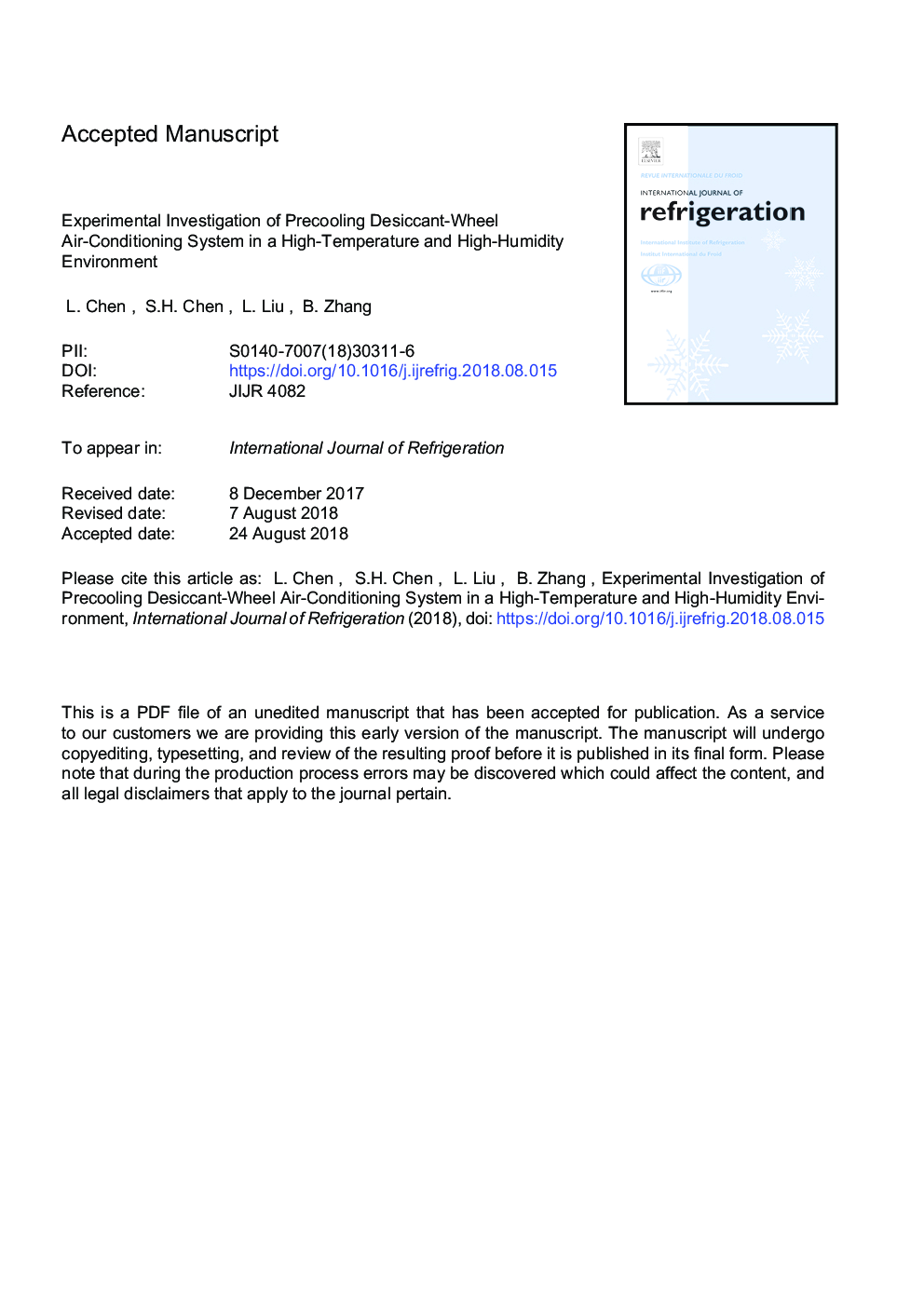| Article ID | Journal | Published Year | Pages | File Type |
|---|---|---|---|---|
| 11012126 | International Journal of Refrigeration | 2018 | 33 Pages |
Abstract
Desiccant-wheel air-conditioning systems driven by low-grade thermal energy have many advantages compared with traditional air-conditioning systems, including energy savings, comfort and environmental protection. Because of the insufficient dehumidification capacity of traditional air-conditioning systems, a precooling desiccant-wheel air-conditioning system that operates under high-temperature and high-humidity conditions was developed. To study the performance of the precooling desiccant-wheel air-conditioning system, experimental devices were built. The effects of the air parameters, regeneration temperature and water supply temperature on the performance of the precooling desiccant-wheel air-conditioning system were experimentally studied. The performance indices included the moisture removal capacity, dehumidification efficiency, refrigeration capacity, enthalpy efficiency and thermodynamic efficiency. The process air temperature, process air humidity ratio, regeneration temperature and water supply temperature had significant effects on the system's performance. When a renewable low-grade heat source was used, the energy consumption of the precooling desiccant-wheel air-conditioning system was reduced. This study provides guidance on the energy conservation design for precooling desiccant-wheel air-conditioning systems intended for use in high-temperature and high-humidity environments.
Related Topics
Physical Sciences and Engineering
Engineering
Mechanical Engineering
Authors
Chen L., Chen S.H., Liu L., Zhang B.,
